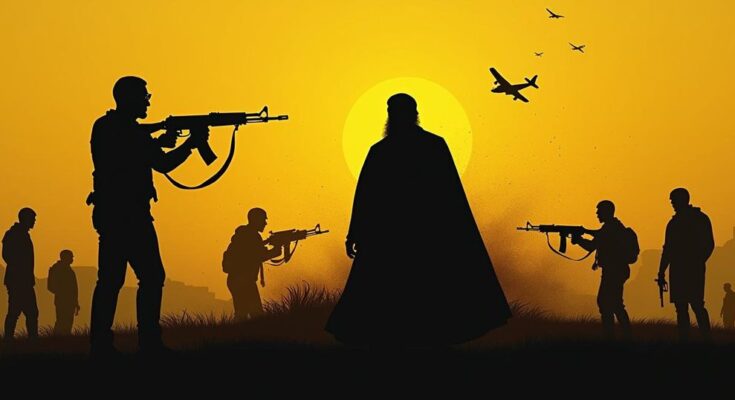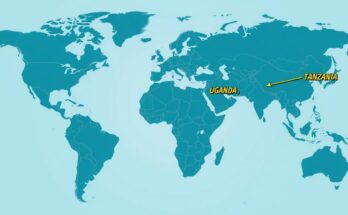Hezbollah confirmed the death of its leader, Hassan Nasrallah, in an Israeli airstrike in Beirut, prompting declarations of continued resistance. The airstrike marked a significant escalation between Israel and Hezbollah, with casualties reported including senior military leaders. The situation remains volatile, with Israel planning more military actions against Hezbollah amidst regional tensions.
On Saturday, Lebanon’s Hezbollah acknowledged the death of its leader, Hassan Nasrallah, following an Israeli airstrike in Beirut the prior day. Hezbollah’s announcement described Nasrallah as having “joined his fellow martyrs” and pledged to persist in its “holy war against the enemy and in support of Palestine.” Nasrallah, who had led Hezbollah for over thirty years, represented a critical target in the ongoing hostilities with Israel. The Israeli military confirmed that the strike was designed to target a meeting of Hezbollah leaders in Dahiyeh, south of Beirut. Following the attack, the Lebanese Health Ministry reported six fatalities and 91 injuries resulting from the airstrikes that destroyed several apartment buildings. In a related incident, Iran’s state media reported the death of Abbas Nilforushan, a senior commander in Iran’s paramilitary Revolutionary Guard, in the same airstrike. This recent escalation in hostilities marks a significant intensification of the conflict between Israel and Hezbollah, particularly in light of Nasrallah’s assassination. Air raid sirens were activated across various regions in Israel following the strike. Prime Minister Benjamin Netanyahu, who had just returned from a trip to the United States, oversaw military responses to the situation. Israeli military officials indicated that the precision strike was based on years of intelligence gathering regarding Nasrallah, although they refrained from detailing the type of weaponry used. Concurrently, Hamas, a militant ally of Hezbollah, expressed condolences and warned that such targeted killings would only reinforce the determination of resistance movements in Lebanon and Palestine. Subsequent to Hezbollah’s confirmation of Nasrallah’s death, spontaneous displays of mourning erupted in Beirut, as citizens expressed both grief and disbelief at the news. At the airport, numerous travelers were seen in emotional distress, attempting to escape the escalating violence. The Israeli military leadership has asserted that the elimination of Nasrallah is not a comprehensive solution, with further strikes anticipated. Defense Minister Yoav Gallant articulated this strike as a pivotal moment in Israel’s military operations since its inception. Israel plans to increase operations against Hezbollah amidst ongoing threats that have caused the displacement of thousands in both Israel and Lebanon. The conflict, which has seen hostilities escalate dramatically in recent weeks, has led to significant casualties and displacement on both sides. Analysts suggest that Nasrallah’s death could create a power vacuum within Hezbollah, posing potential consequences for stability within Lebanon and for its relations with Iran. The situation remains critical as both parties continue to engage in aggressive military actions.
The assassination of Hassan Nasrallah signifies a critical moment in the prolonged conflict between Israel and Hezbollah. Since October 8, following Hamas’s unprecedented attack on Israel, Hezbollah commenced retaliatory strikes, leading to widespread violence that has displaced thousands on both sides. Nasrallah, as a prominent figure in this ongoing conflict, had often positioned Hezbollah as a supporter of Palestinian causes against Israeli forces. His death could alter the dynamics of the conflict and influence Hezbollah’s future military strategies and operations against Israel.
The assassination of Hassan Nasrallah represents a pivotal escalation in the ongoing Israel-Hezbollah conflict, with significant implications for regional dynamics. As Hezbollah vows to continue its resistance, the potential for further retaliatory measures from both sides remains high. The situation is compounded by the humanitarian crisis unfolding in Lebanon, as civilian casualties increase and large-scale displacement occurs. It remains to be seen how Hezbollah’s leadership will respond and whether Iran will amplify its involvement in the aftermath of Nasrallah’s death.
Original Source: www.pbs.org




